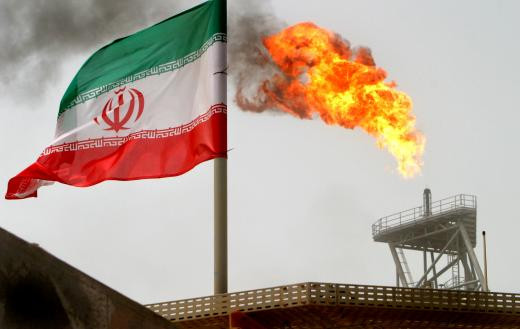Iran is now gripping at the edge of its seat as the US, under the leadership of President Donald Trump, continues to castigate the Islamic Republic with renewed sanctions set to restrict the country's economic growth. Meanwhile, the White House fires on Tehran after the latter files formal complaint to a UN high court following the reimposition of the economic sanctions.
According to USA Today, the US sanctions on Iran's oil industry could certainly "cripple" the embattled country's struggling economy when the policy takes effect this coming November.
Citing an economics report released on Wednesday, the media outlet said that analysts are now wary on the possibility that Trump's sanctions could send Iran into recession. Predictions from experts indicate an economic implosion by 3.7 percent by next year, making it one of the "worst performances in six years."
The said sanctions specifically target Iran's main cash cow - the oil industry. By Nov. 4, trade restrictions will be imposed by the US which will ban the sale of the said crude exports around the world.
An earlier round of sanctions took effect earlier in August. According to this report, the policy forbids Tehran from purchasing US dollars and the sale of its precious metals in the global market.
US to UN - Back Off in the Iran Situation
According to Deutsche Welle, Iran has recently appeared before the International Court of Justice to appeal on the US government's efforts to choke its economy, demanding the court to order the suspension of the said sanctions.
However, the US government attorneys insisted on Tuesday that the said UN court has no jurisdiction on the decisions made by the Trump administration, including its move to reimpose economic sanctions on the Islamic country.
The US State Department, in the person of attorney Jennifer Newstead, said that the ICJ court "lacks prima facie jurisdiction to hear Iran's claims."
The legal team from Iran insist to ICJ that Washington has breached the terms of a certain 1955 US-Iranian Treaty of Amity and Economic Relations when it implemented sanctions on the imports of raw materials, cars, and aircraft from Iran.
Newstead added that the US has all the right to withdraw from the agreement since Iran's behavior continues to threaten the "national security, foreign policy and the economy of the US."
Background Incident
In May, Trump decided to pull out from the 2015 Nuclear Accord which was agreed to by international signatories including the UN and the US. The pact initially lifted the economic ban on Iran in exchange for the country's promise to delimit its nuclear activity in the Gulf region.






